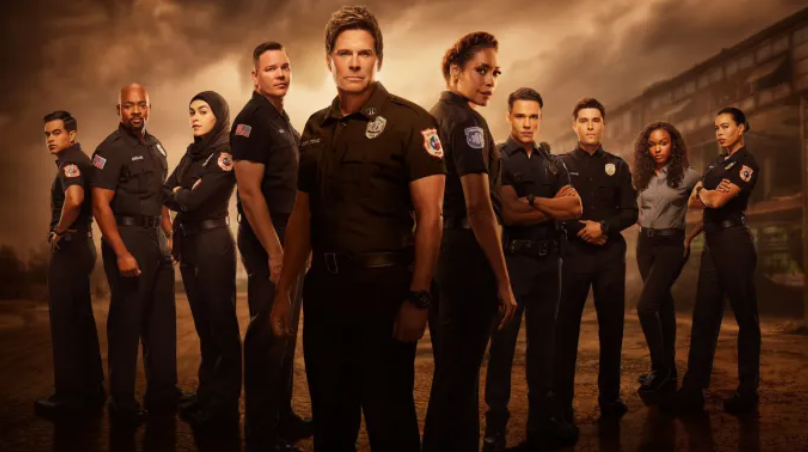911: Lone Star, a spin-off of the popular series 911, has garnered praise for its portrayal of diverse characters and its commitment to social justice. One of the show’s most notable aspects is its faith-based approach to inclusion, which is evident in its representation of LGBTIQA+ characters and its inclusion and storylines for a key Muslim character.
At the heart of 911: Lone Star is a diverse cast of firefighters and paramedics who work together to protect the citizens of Austin, Texas.
The firefighters are led by Captain Owen Strand (Rob Lowe) and the paramedics by Captain Michelle Blake (Liv Tyler).
The show also features Marjan Nasr (Natacha Karam), a Muslim firefighter who wears a hijab while on duty. Marjan’s character challenges stereotypes and misconceptions about Islam, showcasing the faith as a source of strength and resilience. Her presence on the show helps to normalise the Muslim experience while promoting understanding and respect for different cultures and beliefs.
Another significant character is firefighter Paul Strickland (Brian Michael Smith), who is transgender. Paul’s journey is portrayed with sensitivity and compassion, as he navigates the challenges of living authentically in a world that can be unaccepting. His character is a powerful representation of the transgender community and serves as an inspiration to others.
911: Lone Star‘s progressive faith-based approach to inclusion is evident in its portrayal of these characters. The show’s creators have made a conscious effort to create a diverse and inclusive environment where all characters are treated with respect and dignity. This is reflected in the way that the characters interact with each other, both on and off duty.
One of the most striking aspects of the show’s faith-based approach is its emphasis on the importance of community and compassion. The firefighters and paramedics in 911: Lone Star are united by their shared commitment to serving their community and helping those in need. This sense of shared purpose transcends differences in religion, sexuality, and gender identity.
The show’s faith-based approach is also evident in its exploration of themes of redemption and forgiveness. Several characters in 911: Lone Star have struggled with past mistakes and demons, but they are ultimately able to find redemption through their service to others. This message of hope and resilience is a powerful one that resonates with audiences of all backgrounds.
911: Lone Star‘s progressive faith-based approach to inclusion has made it a groundbreaking series. By featuring diverse characters and exploring themes of acceptance, compassion, and redemption, the show has challenged stereotypes.
In addition to its portrayal of diverse characters, 911: Lone Star also features a strong female cast, which is another important aspect of its progressive approach to inclusion. The show’s female characters are complex, capable individuals who are not defined solely by their gender. They are respected and valued members of the team, and their contributions are essential to the success of the mission.
The strong female cast in 911: Lone Star helps to challenge gender stereotypes and promote gender equality. It also sends a powerful message to young girls and women that they can achieve their dreams and make a difference in the world.
911: Lone Star and its sister series 911 are well-known for the representation of diverse characters on television. Its progressive faith-based approach to inclusion is refreshing in a main stream television series.
Seasons 1-4 of 911 Lone Star and seasons 1-6 of 911 are available to stream on Disney+













